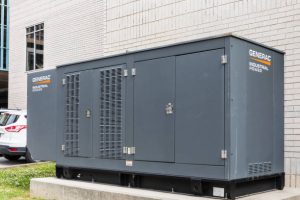A generator is a powerful tool for keeping your home or business running smoothly during power outages, but like any piece of equipment, it needs to be used safely. At Automated Home Generators, we’re here to help you get the most while prioritizing generator safety. Whether you’re a first-time user or a seasoned pro, these tips will ensure your generator runs efficiently and without risk.
1. Proper Placement is Key
One of the most important generator safety considerations for you is where it’s located. Generators emit carbon monoxide (CO), which can be deadly in enclosed spaces. Always position your generator outside, at least 20 feet away from doors, windows, and vents. Avoid placing it in garages, basements, or other partially enclosed areas, even with ventilation.
2. Don’t Skimp on Maintenance
A poorly maintained generator isn’t just less effective—it can also be dangerous. Regular maintenance is essential for keeping your equipment in peak condition. Schedule annual checkups to inspect components like the fuel system, oil levels, and battery connections. At Automated Home Generators, we make this easy by sending out annual service reminders, so you never have to worry about missing critical upkeep.
3. Handle Fuel with Care
Fuel management is another critical aspect of generator safety. Only the type of fuel recommended by the manufacturer should be used and stored in an approved container away from heat sources or open flames. When refueling, make sure the generator is turned off and has had time to cool down to prevent accidental ignition. Regularly inspect the fuel system for leaks or damage, and avoid using fuel that’s been sitting for too long—it can gum up the system and reduce efficiency.
4. Never Overload Your Generator
Generators have a maximum wattage capacity, and overloading them can lead to overheating, equipment damage, or even fire. Before connecting devices, calculate your generator’s load capacity and prioritize essential appliances. If you’re unsure how much your generator can handle, our team can help you determine the right setup for your needs.
5. Use the Right Extension Cords
Not all extension cords are created equal, and using the wrong type can be a generator safety hazard. Choose heavy-duty, outdoor-rated cords with a sufficient gauge to handle the load. Ensure that cords are free of damage and fully plugged into the generator to prevent accidental disconnections or electrical hazards.
6. Watch for Warning Signs
Make sure you keep an eye out for anything that sounds or smells off when your generator is running. These could be signs of a problem, such as an electrical issue or mechanical failure. Don’t ignore warning signs—address them immediately to avoid further damage or unsafe operation. If something seems off, our expert repair services are just a call away.
7. Plan Ahead for Emergencies
A generator is most valuable during unexpected outages, so it’s important to be prepared. Test your generator regularly to ensure it’s ready to go when you need it. Familiarize yourself with the owner’s manual and have necessary accessories, like spare fuel, oil, and filters, on hand. If you prefer a DIY approach, we can supply you with the parts you need. And if troubleshooting isn’t your thing, our team is here to handle repairs and maintenance for you.
Contact Us Today
At Automated Home Generators, safety and reliability are at the core of everything we do. Whether you need a new installation, routine maintenance, or repair services, we’re here to keep your generator running smoothly.
Don’t leave your power needs to chance — contact us today to schedule your service or learn more about how to use your generator safely.
Let’s make sure your generator is ready to perform when it matters most.





